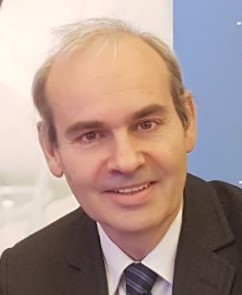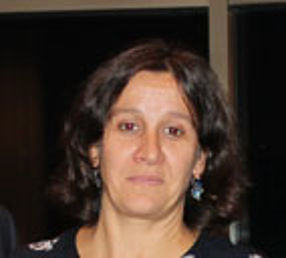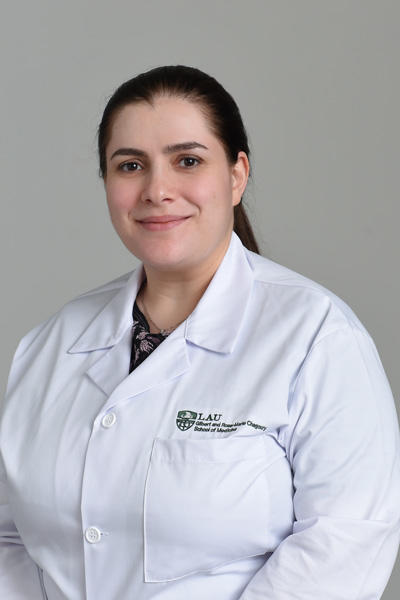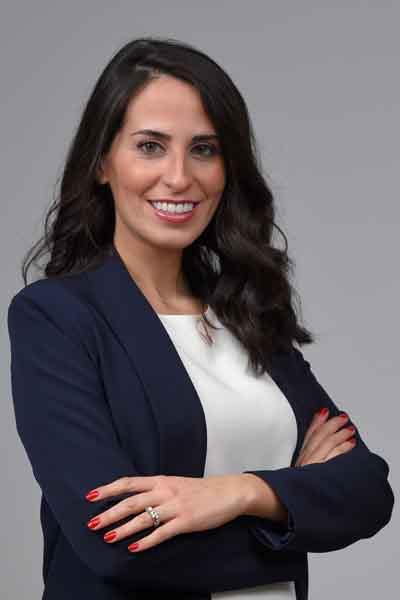Speakers and Abstracts
(Speakers are listed in the order of the programs’ sessions)Lecture 1: Technological and Therapeutic Advances in Neuromuscular Disorders

Andoni Urtizberea, MD, Msc.
Dr. Urtizberea is a French physician trained in Paris University (1983-1987) and certified both in pediatrics and PMR (physical medicine and rehabilitation). After graduating in parallel from the “Institut d’Etudes Politiques de Paris” in 1987, he served many years as Medical Director of the AFM-Telethon and then as General Delegate of the “Institut de Myologie of Paris”. As Scientific Director of the European Neuromuscular Center in the Netherlands (ENMC, 1999-2005), and with the AFM-Téléthon’s support, he contributed to the establishment of many global networks in myology. He served till December 2019 as part-time clinical myologist in Hendaye Hospital, France (APHP trust) and as deputy coordinator of the French Neuromuscular Network (FILNEMUS) in Marseilles. Over the past twenty years, he headed various worldwide educational events dedicated to myology (in Europe, Russia, Latin America and, more recently in the Middle-East). He is currently a faculty at the Institut de Myologie of Paris, France, running the AcadeMYO project. Ideally located at the intersection of industry, patient advocacy groups and academia, his main objective is to raise more awareness about these rare conditions notably in emerging. In (2016), and together with Prof. Andre Megarbane (Beirut, Lebanon), he co-founded “Maladies Orphelines Sans Frontières” (MOSF), an NGO dedicated to humanitarian relief in the field of rare diseases.
Abstract
Progress made in muscle imaging, in immunology and, more importantly, in next generation sequencing (NGS) has transformed the way we diagnose neuromuscular patients nowadays. These new technologies contributed to a significant expansion of the whole spectrum of such disorders with more than 400 entities described to date.
There are now a growing number of neuromuscular conditions amenable to specific therapies irrespective of their genetic or acquired nature. Spinal muscular atrophy (SMA) and Duchenne muscular dystrophy (DMD) particularly benefited from significant advances achieved in the field of gene therapies. These disease-modifying therapies, very often extremely pricy, are unfortunately out of reach in many countries.
Conversely, and as exemplified by the saga of riboflavinopathies, great clinical improvement can be obtained in a couple of ultra-rare neuromuscular diseases using simple, cheap medications.
Lecture 2: Hereditary Neuropathies: International Collaboration

Valerie Delague, PhD
Dr. Delague is currently leader of the research group “Genetics and Pathomechanisms of Inherited Peripheral Neuropathies” at Marseille Medical Genetics/U 1251 research unit in Marseille. She has been working on these diseases for many years, and has acquired a strong expertise in the field. By setting-up a network of geneticists, clinicians and molecular biologists from the Mediterranean basin and the Middle-East (Lebanon, Tunisia, Morocco, Palestine and Iran), and due to her previous expertise (7 years of research on consanguineous families in Lebanon), she focuses her research on autosomal recessive forms of CMT, which are usually less frequent, of earlier onset and more severe than the autosomal dominant CMT forms (CMT1).
Through these collaborations, she has the opportunity to collect large inbred families affected mostly by autosomal recessive forms of CMT, and has been able to identify several genes mutated in different forms of CMT4 (autosomal recessive demyelinating CMT): CMT4F , due to mutations in PRX and CMT4H due to mutations in FGD4, dHMN due to mutations in VRK1, as well as genes mutated in rare forms of Non Progressive Cerebellar Ataxia (WDR73, PMPCA).
Through the identification of new defective genes/proteins in the peripheral nerve, and the study of their function in normal and pathological conditions, she intends to better understand the physiopathology of IPNs and to identify treatments for these diseases. To this aim, she is developing several in vitro and in vivo (mouse, zebrafish) models. Her work led to the publication of more than 90 scientific papers in international peer-reviewed journals.
Finally, one striking issue in Dr. Delague’s career is her constant dedication toward developing collaborations between researchers from the Mediterranean areas (Lebanon, Tunisia, Algeria, Morocco and Palestine), and more importantly toward improving the nature of the “North/south”.
In 2016, she was awarded with the Rammal medal, for her leading role in research in Molecular Genetics, her teaching and training of other researchers and for her continued efforts over many years to develop scientific collaborations between researchers from many countries in the Mediterranean area and to enhance global expertise in the treatment of genetic disorders.
Abstract
Inherited peripheral neuropathies (IPN) are one of the most frequent inherited causes of neurological disability characterized by length-dependent progressive degeneration of the peripheral nervous system (PNS). Charcot-Marie-Tooth disease (CMT), the largest group of IPNs, is also one of the commonest neuromuscular disease with a prevalence of around 1/2500. This group of diseases is characterized by extensive heterogeneity, both clinical and genetic, with over 140 IPN genes identified to date in IPNs, of which 100 are responsible for CMT. This genetic heterogeneity corresponds to a diversity of altered pathways highlighting the complexity of the peripheral nerves’ biological system the importance of identifying defective genes in IPN and studying the underlying physiopathological mechanisms
Lecture 3: What can we do to Help Families with Orphan Diseases?

Abeer Hani, MD
Dr. Abeer J. Hani is Clinical Assistant Professor of Pediatrics and Neurology at the LAU Gilbert and Rose-Marie Chagoury School of Medicine and LAU Medical Center-Rizk Hospital, with expertise in pediatric neurology, epilepsy, and intraoperative monitoring. She completed her M.D. degree at the American University of Beirut in Lebanon in 2008, then pursued a three-year residency training in Pediatrics at AUB between 2008 and 2011. At Duke University in Durham, North Carolina, U.S.A., she completed a three-year fellowship in Child Neurology from 2011 to 2014, followed by a one-year fellowship in Clinical Neurophysiology, Epilepsy and Intraoperative Monitoring in 2014-2015. Dr. Hani is an active member of multiple local and international scientific committees. She is also an active researcher and has authored many publications and book chapters. Her current areas of research include epilepsy and developmental delays. She is also heavily involved in academic teaching and is the Pediatrics Residency Program Director at LAU Medical Center-Rizk Hospital. Dr. Hani serves as a consultant in Pediatric Neurology to multiple local hospitals. She has expertise in various neurologic disease of childhood, epilepsy, and intraoperative monitoring.
Abstract
Given the recent advances in genetic testing and improved research on many Orphan diseases, there are now more rare diseases amenable to specific therapies.
Many of these disease-modifying therapies are often very pricey and sometimes out of reach in certain counties.
During this talk, we will identify some of the challenges facing families with Orphan diseases and suggest high yield resources and services that may give aid to these families at different levels. We will tackle the growing therapies available for Orphan diseases and discuss accessibility of these treatments in our country and region.
Lecture 4: The Added Value of Next Generation Sequencing in the Field of Genetic Diagnosis of Rare Diseases

Eliane Chouery, PhD
Dr. Eliane Chouery obtained her Ph.D. in Human Genetics and Molecular Biology from Université de Versailles Saint-Quentin-en-Yvelines, France in 2008. She had established, in 1998, the Molecular Biology unit for molecular diagnosis, and in 2005 the Human Identification section, at Saint Joseph University (USJ) in Lebanon. Beginning in 2002, Dr. Chouery was in charge of the Molecular Biology and Basic Genetics courses at the same faculty. She was appointed Associate Professor in the Faculty of Medicine of USJ in 2017.
Her research focuses on the identification of genes involved in orphan diseases. She is author or co-author of more than 100 publications.
Dr. Chouery’s previous experience will enable her to contribute to the establishment of the Department of Human Genetics at the LAU Gilbert and Rose-Marie Chagoury School of Medicine. This department will include a genetic counseling unit, a molecular genetic diagnosis unit and a human identification unit; and the Human Genetics faculty will engage substantially in teaching and research activities at the school of medicine.
Abstract
The past few decades have witnessed a tremendous development in the field of genetics. The implementation of next generation sequencing (NGS) technologies revolutionized the field of molecular biology and made the genetic information accessible at a large scale. Indeed, whole exome sequencing (WES) or whole genome sequencing (WGS) approaches based on NGS techniques became universal tests for the identification of the genetic causes of most genetic rare disorders, such as epilepsy, intellectual disability, neurodevelopmental, neurometabolic and neuromuscular disorders, among others.
However, connecting a rare genetic variation to a complex phenotype remains challenging. Indeed, identifying the cause of a genetic disease requires a multidisciplinary approach, starting with the establishment of a clear phenotype with a detailed family history and ending, in some cases, with functional assays that are crucial for the validation of the pathogenicity of a mutation.
The presentation given herein will discuss the different available NGS approaches nowadays and pinpoints the contribution of WES and WGS data to an efficient genetic diagnosis based on the experience of the Department of Human Genetics at the Lebanese American University. Lessons learned will also be shared.
Lecture 5: Molecular Diagnostics of Rare Genetic Diseases: Challenges and Opportunities!

Cybel Mehawej, PhD
Dr. Cybel Mehawej obtained her Ph.D. in Genetics from Paris Descartes University and from Saint-Joseph University (USJ) in 2013 (International Dual Degree Ph.D.). Her doctoral work aimed to identify new genes involved in skeletal dysplasia. In 2015, Dr. Mehawej joined Dr Raif Geha’s laboratory at Boston Children’s Hospital, Harvard Medical School as a postdoctoral fellow, where she focused on the identification of the molecular bases of Primary Immunodeficiency Diseases (PIDs). During her Ph.D. and postdoctoral training, Dr Mehawej acquired skills in sophisticated molecular and functional genetics tools and techniques, including Next Generation Sequencing applications and analyses and the CRISPR-Cas9 technology. In July 2017, Dr. Mehawej was recruited as Assistant Professor at the Faculty of Medicine at USJ where she was in charge of teaching medical students in functional genetics and immunogenetics. She was also appointed Head of the functional genetics section at the Medical Genetics Unit at USJ. Dr Mehawej was in charge of the molecular diagnosis of patients with PIDs. Furthermore she contributed to the implementation of TREC-based neonatal screening for severe combined immunodeficiency diseases and T-cell lymphopenia conditions in Lebanon, in collaboration with the Ministry of Public Health, American University of Beirut Medical Center and the iFight PID fund.
Dr. Mehawej’s activities have led to the identification of several genes involved in orphan diseases. Her current research focuses on the elucidation of the molecular bases of genetic disorders, with a special focus on PIDs. She is author or co-author of 20 papers published in peer-reviewed journals. In addition she has participated in several international scientific meetings. Dr Mehawej has been the recipient of a number of fellowships and awards, and her work has been recognized by the “Franco-Lebanese Medical Association” which granted her an “Excellence Award” in 2012.
Abstract
Rare diseases affect nearly 300 million people worldwide, representing around 4% of the total world population. Of these, 72% have a genetic cause. The identification and characterization of the molecular basis of rare genetic disorders is crucial for the establishment of a specific diagnosis. This allows the family to benefit from an accurate genetic counseling, the patient/his parents to be aware of the disease’s prognosis, and the physician to implement adequate therapeutic approaches, when possible. Recent advances in the field of genetics allowed the emergence of high-throughput sequencing techniques which enabled the shortening of the diagnostic odysseys of patients with rare diseases, the identification of novel genes and the elucidation of physiological mechanisms, all driving towards personalized medicine. Nevertheless, failure in the diagnosis or the counseling of some cases with rare genetic diseases still exists due to several challenges encountered in the diagnostic path.
This talk will focus on many cases referred to the Department of Human Genetics at the Lebanese American University. Several success stories will be shared and lessons learned from challenging cases will be discussed.